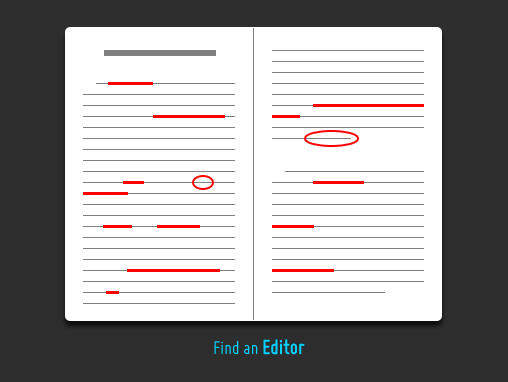This last non-written discipline of writing (the others being reading, planning and research) is probably the easiest to understand, but also the most difficult to really do well. This is because there are actually two different types of editing that need to be a part of your writing process—and both require your collaboration with others.
The simpler kind of editing—proofreading—should be done several times between your first and final drafts, ideally by another human being. While spellchecking software can catch the majority of spelling and grammatical mistakes, it won’t catch them all. There are all kinds of words that can appear correct to a machine that are obviously incorrect when read by a human (i.e. “John didn’t know witch door to choose.”). Machines also won’t suggest substitutes for those words you use too frequently, or better ways to structure paragraphs and sentences. So get another set of eyes on your drafts, as often as possible. Also, it’s not essential, but many people swear by printing out drafts, as reading from the page tends to make mistakes and issues of flow much easier to identify.

The more complex kind of editing is far less mechanical and involves the shaping of your ideas earlier on in the writing process. This is the kind of work that most authors attribute much thanks to their editors in the Forewords of their books. In general, I would say that editing is the process of evaluating whether you are expressing your thought in the best way possible; a process that is both mechanical and conceptual. This part of the process is certainly the more conceptual and requires that your editor be familiar with your subject matter and know you well enough to be able to see when you’re not being as clear as you could be.
Editing makes your writing readable, which means you probably can’t be your own editor. Once you’ve written something down, you’ll never be able to read it in the same way that someone else will. You’re just too close to it. Sure, enough time can give you the distance you need to be objective, but who has those kind of deadlines?



